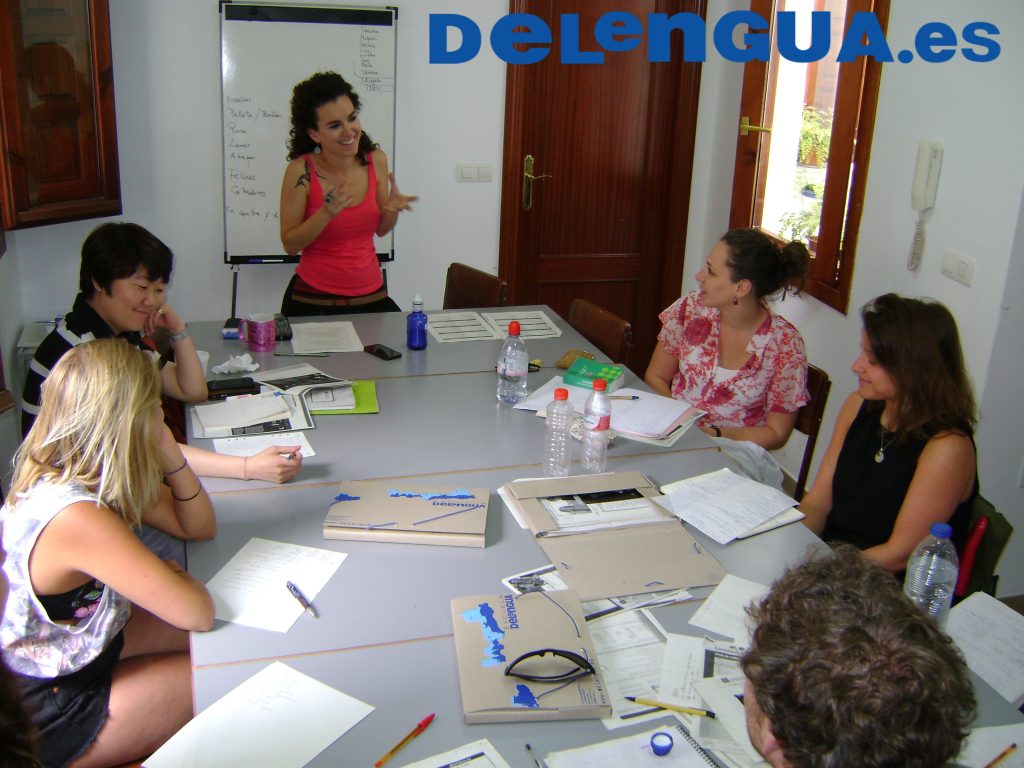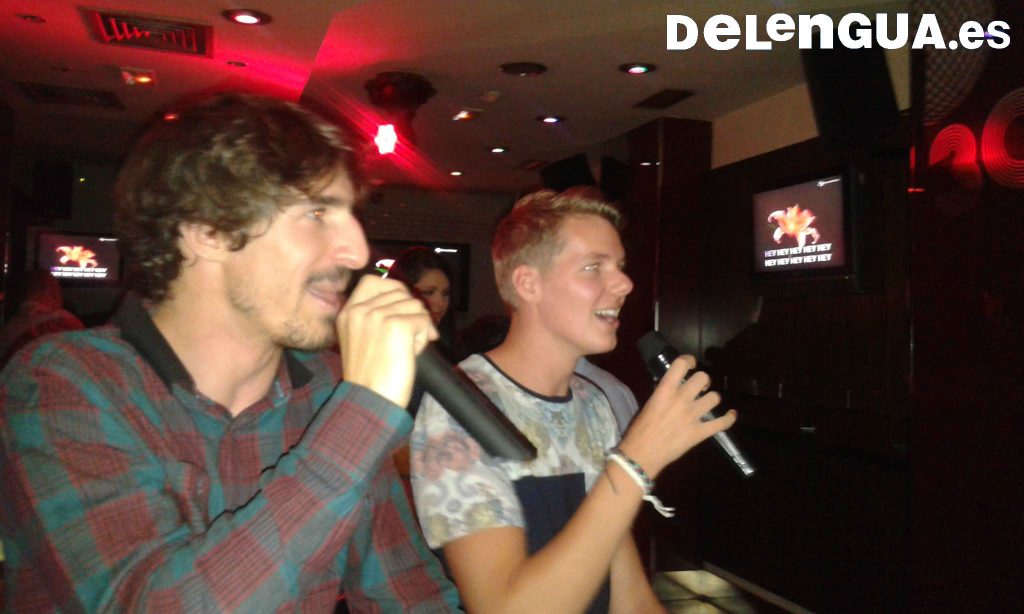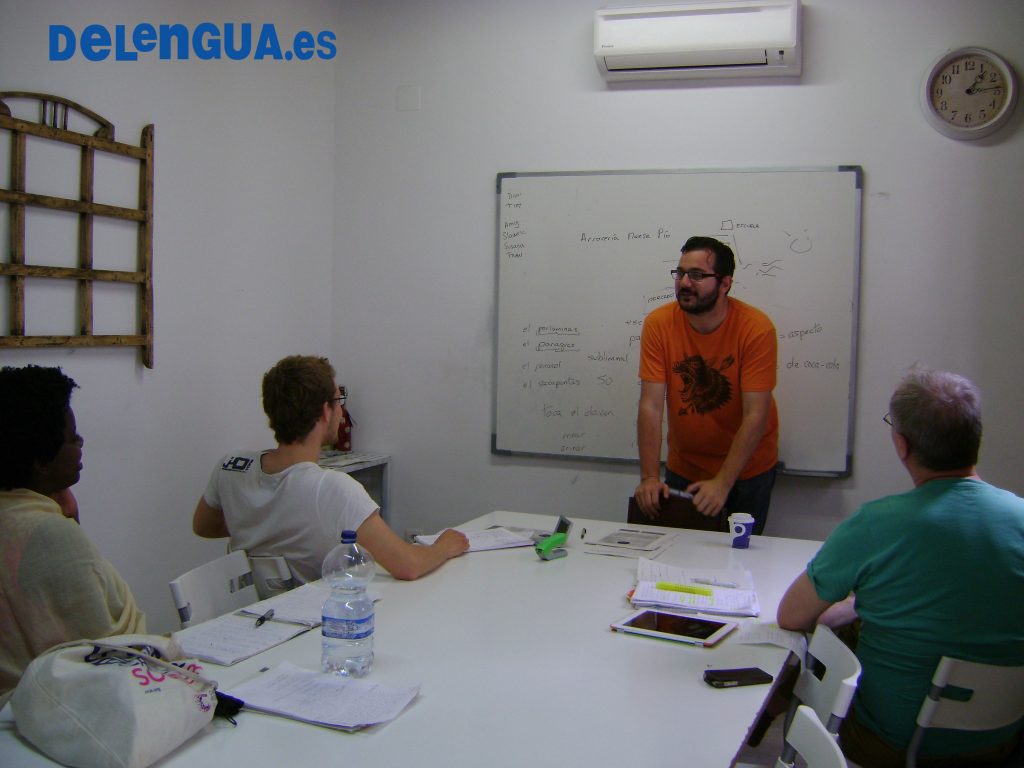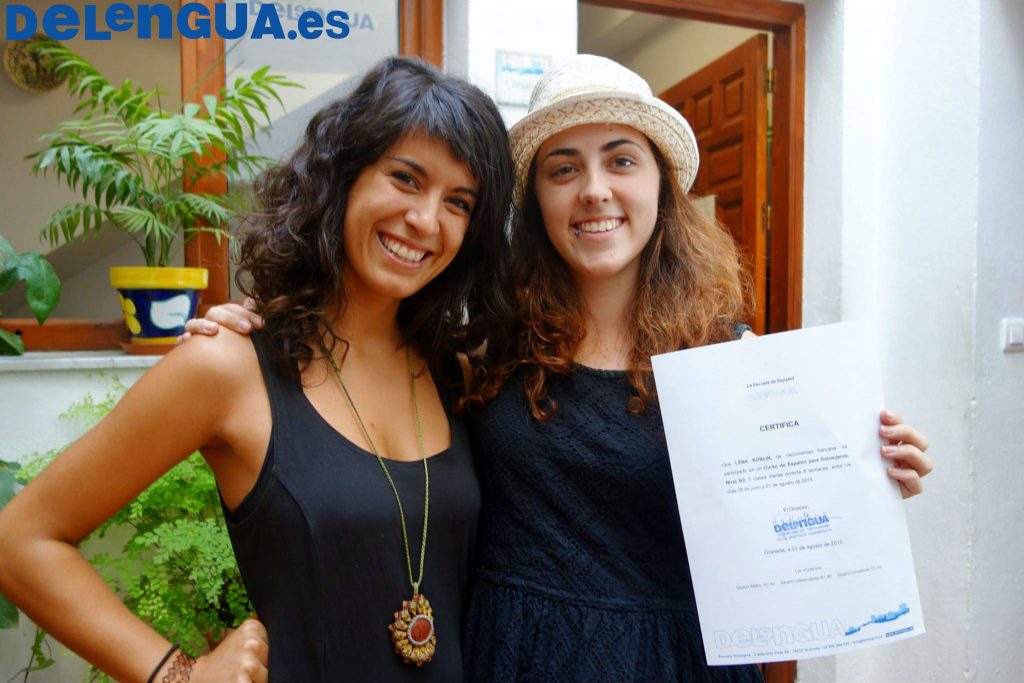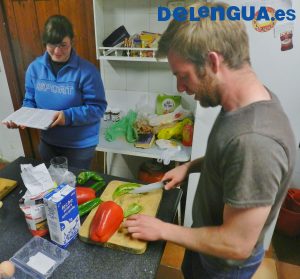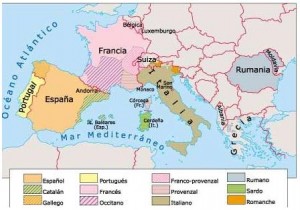| Español | English | |
|---|---|---|
| Las lenguas romances (español, italiano, rumano, portugués, catalán, etc.) son una rama de los idiomas indoeuropeos y aparecían como evolución del latín vulgar. El latín vulgar era el lenguaje del latín clásico (que sólo se utilizaba para escribir) y se hablaba en las provincias del Imperio Romano. La lenguas romances empezaron siendo dialectos regionales del latín vulgar y se desarrollaron a lenguas propias. Se hablaba, y se sigue hablando estas lenguas, en el sur europeo del antiguo Imperio Romano, por eso este territorio recibía el nombre de la Romania.
Las lenguas romances están en oposición con otras familias de idiomas como el fráncico en Francia o las lenguas germánicas. Aunque estos territorios también pertenecían al Imperio Romano los idiomas siguieron otra evolución histórica. Pero hasta que se pudo hablar de lenguas de verdad, en comparación a variedades o dialectos, las lenguas romances se desarrollaron durante mucho tiempo. Entre los siglos II y IV sobresalían las primeras formas diferentes del latín vulgar. En los siguientes 200 años estas formas se distinguían en variedades o dialectos diferentes. Desde el siglo VIII se puede hablar de la existencia de lenguas romances. La primera prueba escrita del término romano tiene su origen en el año 813. Aunque las lenguas romances presentan evoluciones divergentes se han desarrollado a partir de la misma lengua y todavía tienen características parecidas. Puedes aprender más sobre la historia de las lenguas romances y especialmente de la lengua española en la Escuela Delengua en Granada. Durante un curso de español también te enseñamos nuestra historia, cultura, arte y literatura. En nuestros cursos especiales que tratan de estos temas, tienes la posibilidad de combinar tu propio programa. Directamente en el centro de Granada la Escuela Delengua te espera con cursos de español y un programa de actividades que te enseñan la belleza de España. |
The Romance languages (Spanish, Italian, Rumanian, Portuguese, Catalan, etc.) are a branch of the indoeuropean languages and are the evolution of the vulgar Latin. The vulgar Latin was the spoken language based on the classic Latin (which was only used as written language) and was spoken in the provinces of the Roman Empire. The Romance languages started as regional dialects of the vulgar Latin and developed to own languages. They spoke, they still speak, these languages in the europan south of the antigue Roman Empire, that’s why this territory received the name The Romania.
The Romance languages are in conflict with other language families like the francophone frenchmen or the Germanic languages. Although these territories were also part of the Roman Empire, these languages run another historical developement. But if you could call them real languages, in comparison to varieties or dialects, the Romance languages had to develope during lots of time. Between the 2nd and 4th century developed the first different forms of the vulgar Latin. In the following two centuries these forms changed to varieties or dialects. Since the 8th century you can talk about the existence of the Romance languages. The first written proof of the term romance can be dated to the year 813. Although the Romance languages represent different evolutions, they developed of the same language and still have similar characteristics. More about the history of the Romance languages and especially the Spanish language you can learn in the language school Escuela Delengua in Granada. During a Spanish Programme we also show you our history, culture, art and literature. In our special courses which deal with this topics you have got the possibility to assemble your own programme. In the very centre of Granada the language school Escuela Delengua is waiting for you with its Spanish courses and an activity programme which shows you the beauty of Spain. |
For more information visit our website:
Search
Archives
-
Recent Posts
Tags
activities Alhambra Andalucía Andalusia Aprende español en España Aprende español en Granada Cine Español cinema cultura Cursos de espanol en Granada Cursos de español Cursos de español en España Cursos de lengua Cursos de lengua en España Cursos de lengua en Granada Delengua activities España español fiesta film flamenco Gramática Española / Spanish Grammar Granada hiking in the Sierra Nevada la lengua española Language courses language courses in Granada language courses in Spain learn Spanish learn Spanish in Granada Learn Spanish in Spain Pedro Almodóvar senderismo en la Sierra Nevada Sierra Nevada Spain spanish Spanish Courses Spanishcourses in Granada Spanish courses in Granada Spanish Courses in Spain Spanishcourses in Spain Spanish Grammar Spanish Language School the Spanish grammar the Spanish Language






